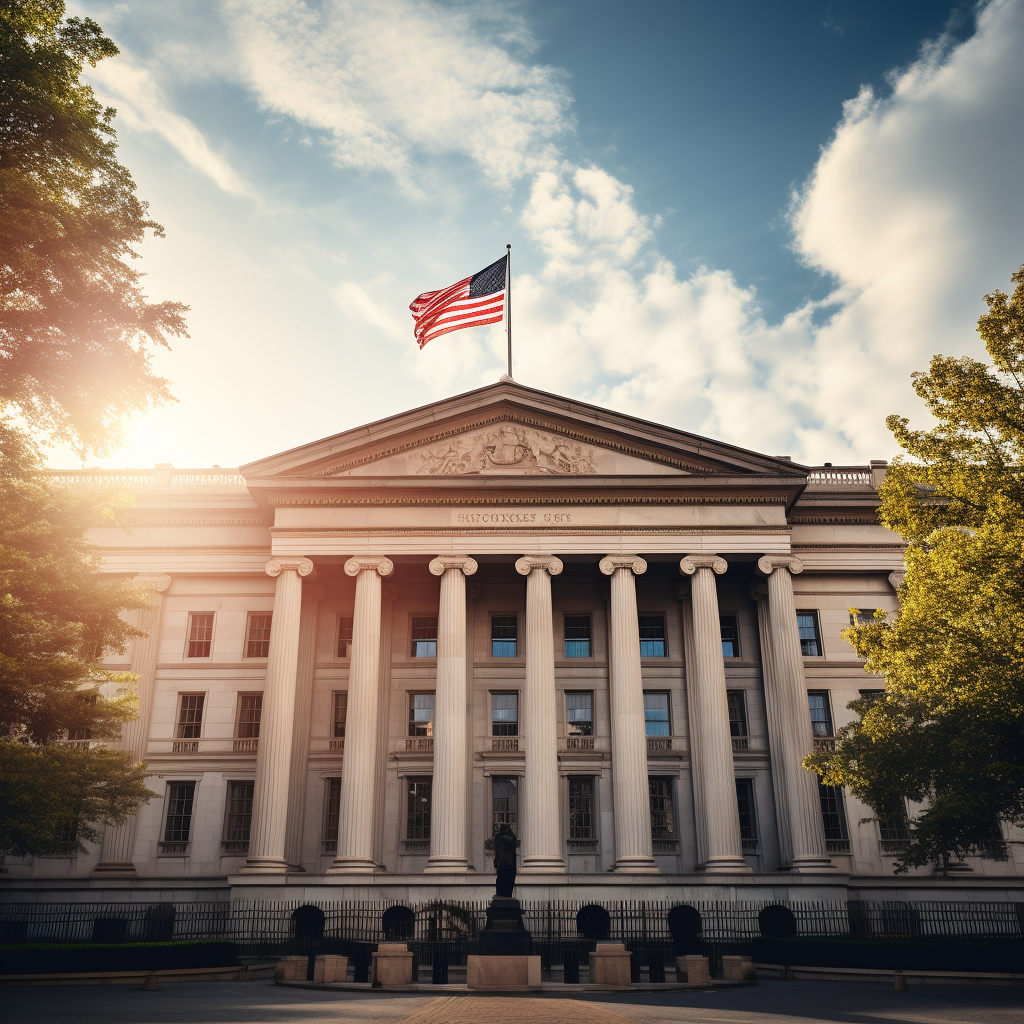US Government's Q3 Borrowing Soars to $1 Trillion Amid Widening Deficit and Record Debt Servicing Costs: Treasury Report
Amidst a mounting fiscal deficit and depleting cash reserves, the US government is significantly revising its capital borrowing expectations for this quarter.

Treasury Department Increases Q3 Borrowing Estimate to $1.007 Trillion, Significantly Higher than Previous Forecast
The Treasury Department has revised its Q3 borrowing estimate to a staggering $1.007 trillion, a substantial increase compared to the earlier projection of $733 billion in May. This surge is primarily attributed to a lower beginning-of-quarter cash balance and a higher end-of-quarter cash balance ($50 billion). The Treasury also anticipates lower receipts and higher outlays, contributing to the increased borrowing needs.
As of June, the federal deficit for the nine-month period reached $1.39 trillion, marking a remarkable 170% increase from the corresponding period the previous year. During this period, the government expended more than $4.80 trillion while generating $3.413 trillion in tax revenues and other income.
Additionally, Bloomberg reports that the weighted average interest on outstanding US debt reached 2.76% by the end of June, the highest level in over 11 years.
The US government borrows capital from various sources, including domestic and foreign governments, institutional investors like mutual funds and pension funds, and individual investors who purchase Treasury bills, notes, and bonds. These funds are essential for repaying existing debts and financing government programs and operations.
Although the United States maintains a "AAA" credit rating, the highest level for countries with the lowest default risk, Fitch, a major ratings agency, has placed the nation on negative watch due to concerns about fiscal and debt trajectories. Fitch acknowledges the country's exceptional strengths, such as its robust economy, high GDP per capita, and dynamic business environment. However, governance shortcomings could potentially erode some of these strengths over time.
The US dollar's status as the world's primary reserve currency provides the government with unmatched financing flexibility, but the ongoing fiscal challenges warrant close monitoring of the country's credit rating.
Generated Image: Midjourney
Aug 04, 2023













